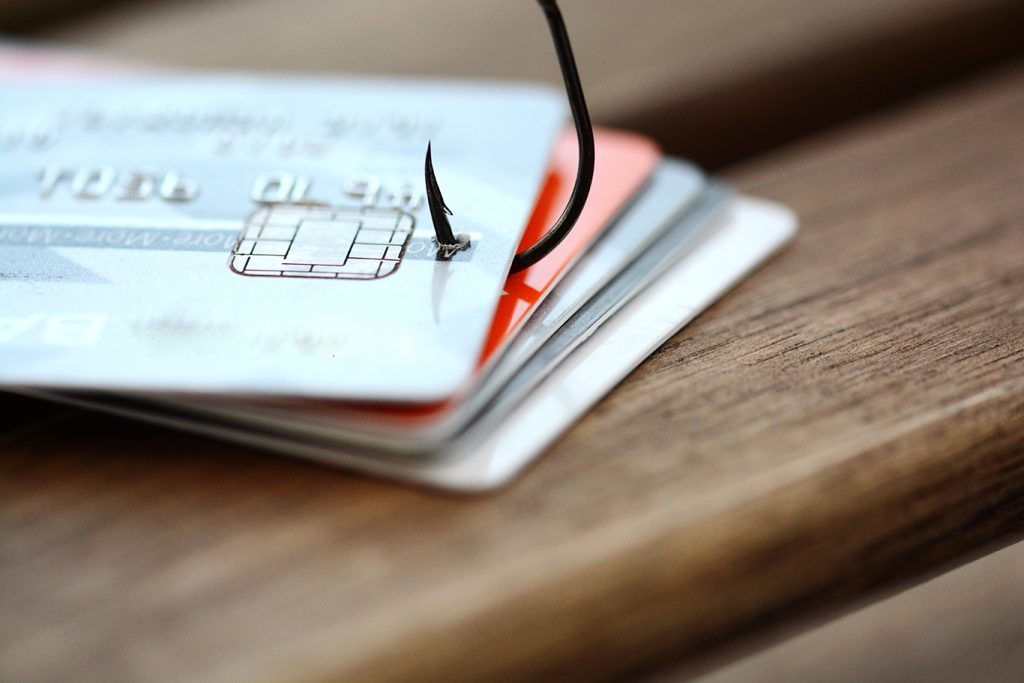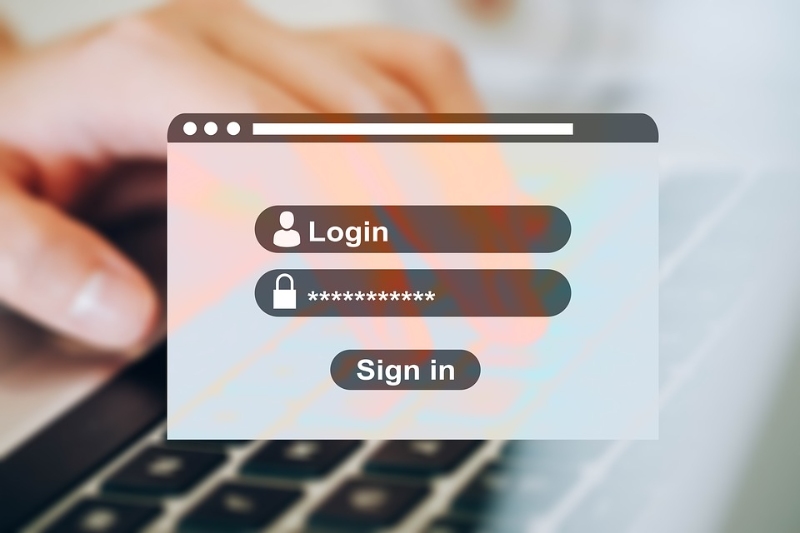Most people do not have time to visit shops, so they sit behind laptops and phones and browse through endless catalogs. We love online shopping because of its convenience. With a touch of a button, we can purchase anything worldwide and have them delivered to us right at our doorstep. But with the comfort comes the risk of not getting what you paid for and ordered. Online shopping has become increasingly more well known over the long haul as customers embraced the comfort of purchasing anything they wanted with a couple of snaps. Then the pandemic decisively expanded shopper dependence on web-based looking for everything, from food to shots in the arm when we were unable to venture out from home.
“We’re OK with shopping on the web, and doing so is moderately protected,” says Ari Lightman, a teacher of computerized media and promotion at the Heinz College at Carnegie Mellon University. In any case, as retailers constantly add ways of shopping and paying on the web, crooks track down better approaches to squeeze hundreds off their imprints.

Be On The Lookout for These Scams!
What you ordered Vs. what you get scam
It is a ”scam” that has become so popular that it is now an internet meme. We are sure you have seen the sometimes hilarious memes of people getting the complete opposite of items displayed on the company’s website. We refer to it as a scam because customers are led to believe in the product’s authenticity. Many scammers create fake online stores, create counterfeit products, or steal from another website to pass it off as their own. So when unsuspecting customers order things off their website, they either get something they did not order or nothing at all.
Costly ‘free’ trials
Notices with the expectation of complimentary preliminaries of skincare and weight reduction items show up often on the web, with buyers welcome to pay an ostensible postage charge to get a free example of the ‘wonder’ item. In any case, concealed in the important part is the trick – except if you contact the organization to drop inside a set time span (generally 14 days), you will be charged consistently for the full expense of the item which can depend on €200.
Informal sites offering public administrations
Look out for outsider sites internet offering administrations, for example, European Health Insurance Cards, driving test appointments, or visas, which will charge you extra ‘organization expenses’. Proposals sites frequently mirror official sites and by and large you will have paid something else for the very same assistance had you booked it on the authority site. Continuously utilize the authority site of the association that you are applying to and know that noticeable rankings in web crawlers are frequently paid for.
Lotteries
You can be reached by phone, email, letter, or win an award on a scratch card. You are informed that you have won a ‘major award’ and should call a superior rate number or pay an organization expense to gather your award. You will be approached to pay an organization expense or to send your own record subtleties to accept your large monetary reward. You will be told to pay within an extremely brief timeframe to guarantee you accept your award. Whenever contact is laid out additional installments will be looked for. Whenever every one of the sums has been moved you won’t ever hear from the lottery coordinator from now on. Your cash will be lost.
‘Nigerian Letters ‘

The supposed “Nigerian letters‘ ‘ (otherwise called Code 419 tricks, after the article of the Nigerian Criminal Code managing misrepresentation) can likewise begin in different nations. These are email tricks from somebody indicating to be the bookkeeper of ousted sovereignty or a lawmaker, or on the other hand a bank representative who is aware of a critically ill rich individual without any family members or whatever comparable scenarios. They give you an offer of an enormous fortune as a trade-off for utilizing your ledger to move the cash out of the country. The trickster will utilize any bank subtleties given to endeavor to separate cash from your ledger.
Free holiday promotions
Be careful with ‘free’ occasion advancements that might be proposed to you through scratch cards, cold pitching, or direct mailings. You will be informed you have won a free occasion, be it a journey or an occasion in the sun. You should pay some cash forthright to get your ‘free’ occasion, perhaps briefly individual to go along with you and perhaps an organization charge. You will observe that no occasion emerges. Some ‘free’ occasions will expect you to go to one more objective for flight and may expect you to pay for convenience and so on.
Phishing
Messages indicating to come from your bank or other foundation, requesting that you update, approve, or affirm individual monetary subtleties or passwords. The tricksters will endeavor to utilize these subtleties to extricate cash from your ledgers or assume acknowledgment arrangements in your name. Cell phone instant messages that immediately put you onto fake sites or welcome you to call an exceptional rate portable number or download a vindictive substance are additionally progressively normal.

Verify The Seller’s Identity
You must always check an e-commerce website for contact details to be sure it is legit and exists. Verify details like the company’s name, physical address, email address, contact form, and telephone number. Do not be too trusting of websites with European or American extensions(it does not mean they are European or American) or claim to have international affiliations.
Read The Reviews and Testimonials
Always check what others are saying about the online business. If it is an app, go to the feedback section and read the reviews. Online sellers like eBay and Amazon have feedback sections to reassure you that you are dealing with credible sellers and companies. And to show proof of previous transactions that happened without a hitch. So make sure you get a clear opinion based on reviews before you buy something online.
Do Not Give Out Your Personal Information
Be suspicious of websites that require your security pin or social security number when making transactions. Most online transactions usually need your credit card details, name, and email address. Anything aside, that is most likely a scam.

Tagged Photos Expose Phony Sellers
Some sellers post photos of products that do not belong to them. One way to verify is by asking the seller to send you a tagged photo on social media. It can be anything from their name, today’s date, or other clients who have purchased the same item. If they refuse, it may be because they are trying to scam you into buying something that isn’t real.
Buy From Secure Websites
Do not buy from websites that don’t have Secure Sockets Layer (SSL) encryption. SSL is a padlock symbol that appears in your browser’s address bar. Also, check if the first letters in the address bar change “HTTP” to “HTTPS,” especially when you reach the payment stage.
Read The Policies
Credible online sellers always provide you with clear and correct information about your rights as a consumer. And that includes having a return policy or warranties. Consumers have the right to a 14-day return or a legal guarantee of at least two years. If you don’t find anything like this on the website, do not buy from them.

Do Your Research!
While coincidentally finding another shopping stage on the web, it’s critical to do some examination prior to surrendering your charge card subtleties. Con artists frequently make counterfeit sites that copy genuine retailers to take buyers’ information. Continuously check URLs of sites and pages for errors or sentence structure botches. Never trust pages that don’t give SSL encryption. Search for a green lock symbol toward the beginning of the location bar or ensure the location begins with HTTPS rather than HTTP prior to purchasing anything from an internet-based store. You can likewise check for client audits on the web, yet don’t really accept all that you find in a remark segment via web-based entertainment stages like Facebook.
Be Careful of Your Data & Cookies
Internet business stages generally request specific data on checkout, including installment subtleties, conveyance address, telephone number, and email. Extra demands for data, for example, a PIN or Social Security number raise a major warning. Obviously, never send or give your Visa data to outsiders or people promising you an incredible arrangement.
Lost money to online fraud? We will recover your funds !
Nobody Wants To Give You a Free Gift Voucher if You Do Not Know Them
Retailers frequently email clients unique offers, including gift vouchers and coupon codes they can use on their next buy. Tricksters are likewise mindful of this and send counterfeit messages with phishing connections to take from clueless clients. In the event that an email or offer you get sounds unrealistic, treat it with doubt. Look for the proposal in your program or contact the business straightforwardly. A portion of these “unique” bargains additionally accompany a solicitation for clients to finish a fast review, a famous way for tricksters to take individual data, particularly during the pre-Christmas season. Connections and connections in phishing messages can likewise convey spyware and other malignant programming that will permit a fraudster to gather your delicate information to think twice about and take your cash.
Change Your Passwords After Every 2 Months
Computerized cleanliness is an absolute necessity while shopping on the web. Try to set up a selective secret key for every stage, and empower any type of two-factor verification. You can stay away from account commandeering effectively, and, if there should be an occurrence of giving and taking, guarantee that no different records are impacted.

Secure Your Devices
Online records are by all accounts not the only ones that need extraordinary consideration with regard to security. Stay up with the latest and utilize a security arrangement on your PC, cell phone, or tablet to safeguard against malware assaults, phishing endeavors, and fake connections. Bitdefender arrangements block all known contaminated connections and use web-sifting innovations that guarantee you don’t arrive on hurtful sites while shopping. You can encounter top-tier assurance for your Windows, Mac, Android, and iOS gadgets with our 90-day Bitdefender Total Security preliminary, totally for nothing, and battle off any extortion endeavors and tricks traveling your direction!
The Scammers Have Got Nothing on You Now!
While most deep-rooted locales offer some level of purchaser security, there might be rules you really want to adhere to (like making your installment through the site’s foundation). By teaching yourself about a site’s assurances, you can more readily distinguish possible tricks.
At long last, on the off chance that you really do end up succumbing to a trick, make certain to make a move. Continuously report the occurrence to the FTC and the BBB. You additionally may question the exchange through the installment stage you used to make your installment, like your card backer or on the other hand, assuming you set aside installment straightforwardly from your installment account, your bank. Assuming the buy was made through a commercial center site, make certain to open a conventional objection by means of that site.
To get familiar with normal tricks and ways to safeguard yourself against extortion.



